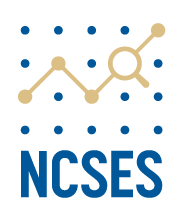Related Research Articles

The National Institutes of Health, commonly referred to as NIH, is the primary agency of the United States government responsible for biomedical and public health research. It was founded in the late 1880s and is now part of the United States Department of Health and Human Services. Many NIH facilities are located in Bethesda, Maryland, and other nearby suburbs of the Washington metropolitan area, with other primary facilities in the Research Triangle Park in North Carolina and smaller satellite facilities located around the United States. The NIH conducts its own scientific research through the NIH Intramural Research Program (IRP) and provides major biomedical research funding to non-NIH research facilities through its Extramural Research Program.

The National Science Foundation (NSF) is an independent agency of the United States federal government that supports fundamental research and education in all the non-medical fields of science and engineering. Its medical counterpart is the National Institutes of Health. With an annual budget of about $8.3 billion, the NSF funds approximately 25% of all federally supported basic research conducted by the United States' colleges and universities. In some fields, such as mathematics, computer science, economics, and the social sciences, the NSF is the major source of federal backing.

The Albert Einstein College of Medicine is a private, nonprofit, research-intensive medical school in the Morris Park neighborhood of the Bronx, New York City, United States. Founded in 1953, Einstein operates as an independent degree-granting institution as part of the integrated healthcare Montefiore Health System and also has affiliation with Jacobi Medical Center.
The National Institute of Arthritis and Musculoskeletal and Skin Diseases (NIAMS) is one of the institutes and centers that make up the National Institutes of Health, an agency of the United States Department of Health and Human Services (HHS).
The National Heart, Lung, and Blood Institute (NHLBI) is the third largest Institute of the National Institutes of Health, located in Bethesda, Maryland, United States. It is tasked with allocating about $3.6 billion in FY 2020 in tax revenue to advancing the understanding of the following issues: development and progression of disease, diagnosis of disease, treatment of disease, disease prevention, reduction of health care disparities within the American population, and advancing the effectiveness of the US medical system. NHLBI's Director is Gary H. Gibbons (2012–present).
The National Cancer Institute (NCI) coordinates the United States National Cancer Program and is part of the National Institutes of Health (NIH), which is one of eleven agencies that are part of the U.S. Department of Health and Human Services. The NCI conducts and supports research, training, health information dissemination, and other activities related to the causes, prevention, diagnosis, and treatment of cancer; the supportive care of cancer patients and their families; and cancer survivorship.
Research associates are researchers that usually have an advanced degree beyond a Master's degree.

A grant is a fund given by a person or organisation, often a public body, charitable foundation, a specialised grant-making institution, or in some cases a business with a corporate social responsibility mission, to an individual or another entity, usually, a non-profit organisation, sometimes a business or a local government body, for a specific purpose linked to public benefit. Unlike loans, grants are not intended to be paid back. Examples include student grants, research grants, the Sovereign Grant paid by the UK Treasury to the monarch, and some European Regional Development Fund payments in the European Union.
Clinical monitoring is the oversight and administrative efforts that monitor a participant's health and efficacy of the treatment during a clinical trial. Both independent and government-run grant-funding agencies, such as the National Institutes of Health (NIH) and the World Health Organization (WHO), require data and safety monitoring protocols for Phase I and II clinical trials conforming to their standards.

Medical research, also known as experimental medicine, encompasses a wide array of research, extending from "basic research", – involving fundamental scientific principles that may apply to a preclinical understanding – to clinical research, which involves studies of people who may be subjects in clinical trials. Within this spectrum is applied research, or translational research, conducted to expand knowledge in the field of medicine.
The National Health and Medical Research Council (NHMRC) is the main statutory authority of the Australian Government responsible for medical research. It was the eighth largest research funding body in the world in 2016, and NHMRC-funded research is globally recognised for its high quality. Around 45% of all Australian medical research from 2008–12 was funded by the federal government, through the NHMRC.

The Space Science Institute (SSI) in Boulder, Colorado, is a nonprofit, public-benefit corporation formed in 1992. Its purpose is to create and maintain an environment where scientific research and education programs can flourish in an integrated fashion. SSI is among the four non-profit institutes in the US cited in a 2007 report by Nature, including Southwest Research Institute, Planetary Science Institute, and Eureka Scientific, which manage federal grants for non-tenure-track astronomers.
Transformative research is a term that became increasingly common within the science policy community in the 2000s for research that shifts or breaks existing scientific paradigms. The idea has its provenance in Thomas Kuhn's notion of scientific revolutions, where one scientific paradigm is overturned for another. Classic examples are the Copernican Revolution, Albert Einstein's theories, the work of Watson and Crick, and plate tectonics theory.
A Clinical Research Coordinator (CRC) is a person responsible for conducting clinical trials using good clinical practice (GCP) under the auspices of a Principal Investigator (PI).
In the United States, the National Institutes of Health (NIH) are the primary government agency responsible for biomedical and public health research. They award NIH grants through 24 grant-awarding institutes and centers.
John X. J. Zhang is a tenured professor at Thayer School of Engineering of Dartmouth College, and an investigator in the Dartmouth-Hitchcock Medical Center. Before joining Dartmouth, he was an associate professor with tenure in the Department of Biomedical Engineering at the University of Texas(UT Austin). He received his Ph.D. in electrical engineering from Stanford University, California in 2004, and was a research scientist in systems biology at the Massachusetts Institute of Technology (MIT) before joining the faculty at UT Austin in 2005. Zhang is a Fellow of the American Institute for Medical and Biological Engineering (AIMBE), and a recipient of the 2016 NIH Director's Transformative Research Award.
Robert A. Stern is professor of Neurology, Neurosurgery, and Anatomy & Neurobiology at Boston University School of Medicine, where he is also director of clinical research for the BU Chronic Traumatic Encephalopathy (CTE) Center. From 2010 to 2019, he was the director of the Clinical Core of the BU Alzheimer's Disease Center.
Jacquelyn Taylor is the Helen F. Petit Endowed Professor of Nursing at Columbia University School of Nursing (CUSON), where she is also the Founding Executive Director of the Center for Research on People of Color (CRPC). Dr. Taylor is also the Founding Executive Director of the Kathleen Hickey Endowed Lectureship on Cardiovascular Care, the first endowed lectureship honoring a nurse scientist at Columbia University. Additionally, Dr. Taylor holds an administrative role as Senior Advisor to the Chair of the Division of Cardiology at Columbia University Medical Center. Dr. Taylor has been a trailblazer in cardiovascular genomics research among minority populations, and diversity and inclusion efforts, having been the first black woman to earn tenure at CUSON, New York University School of Nursing, and the Yale School of Nursing. Dr. Taylor has been recognized for her contributions to the advancement of biomedical sciences, health care, and public health, having been elected to the National Academy of Medicine in 2019. Dr. Taylor is committed to mentoring and advancing health equity as she received the Columbia University Irving Medical Center 2021 Mentor of the Year Award and the 2021 Friends of the National Institute of Nursing Research (FNINR) President’s Award for her significant work in race, culture, and disparities in healthcare. Dr. Taylor has been PI of many studies including, but not limited to, an R01 from National Institute of Nursing Research (NINR)- The Intergenerational Impact of Genetic and Psychological Factors on Blood Pressure (InterGEN), a Presidential Early Career Award for Scientists and Engineers (PECASE) award from President Obama in 2017, an MPI on a P20 from NINR on Precision Health in Diverse Populations in 2018, an MPI on an R25 on Research Opportunities in Cardiovascular Diseases for Minority Undergrad and Grad Students Across the Health Sciences (RECV) in 2020, an MPI of the TRANSFORM TL1 in 2021, and MPI on a NHLBI funded T32 on Postdoctoral Training in Atherosclerosis in 2022. In 2023, she was awarded grants as MPI on an NHLBI funded R01 on 'The Impact of a race-Based stress reduction intervention on well-being, inflammation, and DNA methylation on Older African American Women at Risk for Cardiometabolic Disease' (RiSE) and a NIMHD funded R01 'Identifying and reducing stigmatizing language in home healthcare' (ENGAGE), and MPI of a U54 from NICHD on NY-Community-Hospital-Academic Maternal Health Equity Partnerships (NY-CHAMP), and PI of it's training core. In addition to leading these grants, Dr. Taylor founded the Office of Diversity and Inclusion at the Yale School of Nursing and served as its inaugural Associate Dean of Diversity, and then went on to become the inaugural Endowed Chair of Health Equity and to develop and direct the Meyers Biological Laboratory at NYU before joining Columbia University.
Susan M. Wolf is an American lawyer and bioethicist. She is a Regents Professor; McKnight Presidential Professor of Law, Medicine & Public Policy; Faegre Baker Daniels Professor of Law; and Professor of Medicine at the University of Minnesota. She is also founding chair of the university's Consortium on Law and Values in Health, Environment & the Life Sciences.

The National Center for Science and Engineering Statistics (NCSES) is one of the thirteen principal statistical agencies of the United States and is tasked with providing objective data on the status of the science and engineering enterprise in the U.S. and other countries. NCSES sponsors or co-sponsors data collection on 15 surveys and produces two key publications: Science and Engineering Indicators, and Women, Minorities, and Persons with Disabilities in Science and Engineering. Though policy-neutral, the data and reports produced by NCSES are used by policymakers when making policy decisions regarding STEM education and research funding in the U.S.
References
- ↑ "NERC RESEARCH GRANTS AND FELLOWSHIPS HANDBOOK" (PDF). UK Research and Innovation. February 2021. Archived from the original (PDF) on 27 August 2021. Retrieved 27 August 2021.
- ↑ Research Councils. "Joint Electronic Submissions Handbook: Co-Investigators" . Retrieved 4 May 2021.
- ↑ See, for example, NSF Grant Policy Manual 210f 'Definitions: Principal Investigator'.
- ↑ NIAID (NIH) 'Glossary of Funding and Policy Terms and Acronyms'
- ↑ Couzin-Frankel, J (2014). "Chasing the money". Science. 344 (6179): 24–5. doi:10.1126/science.344.6179.24. PMID 24700835.